ThugPop's meditation
Along with NYMPH, all other content created by THUGPOP will live on his new online platform, ThugPop.farm.
Listen below.
Stay informed on our latest news!
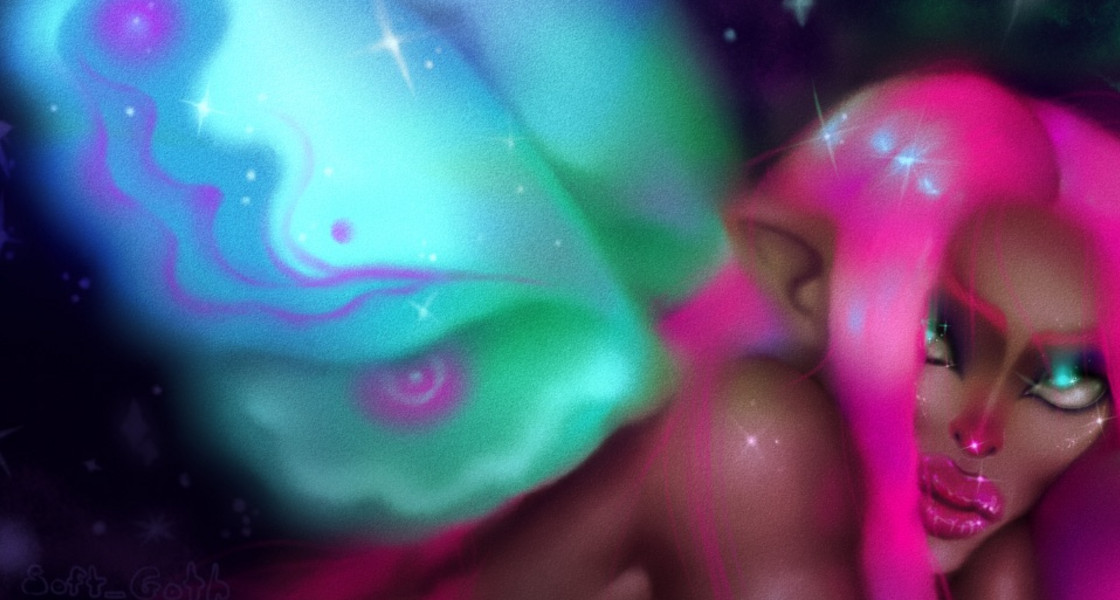
Along with NYMPH, all other content created by THUGPOP will live on his new online platform, ThugPop.farm.
Listen below.

Read Clara's conversation with office below.
Congratulations on the record dropping today. It's a big day.
Clara La San— Thank you.
As far as releasing the record, does it feel like a weight off your shoulders?
CLS— Yeah, it definitely feels like a weight off, releasing this album for people to listen to and know that I exist, that I'm on the planet, and that I haven't just disappeared, so that feels great.
Are you looking forward to touring this record as well?
CLS— Yeah, definitely. I think you always get a different perspective when you're performing the songs live, I think. So I'm just excited to see what people think of them in a live venue and just seeing their reaction and stuff.
Do you find yourself dreaming, and does that influence your art at all? I know that some accomplished artists, and also some of my friends, just don't dream at all.
CLS— It's weird because I've literally been thinking recently that I can't remember the last time I had a dream, and there has been periods of times when I'll dream or I'll maybe have nightmares and stuff. My friend was also texting me and she was like, she's had some really strange dreams. And I was like, I haven't had any dreams. I've just been going to sleep and waking up.
I have one dream where I'm being chased by a spider, like a giant spider in a strip mall.
CLS— Like an anxiety dream.
Yes, definitely slightly anxious and I remember it distinctly, but I also don't really dream that much.
CLS— I don't mind not dreaming. It's kind nice just waking up, going to sleep and waking up.
Me too.
CLS— And sometimes they can affect the way you feel in the morning. They can seep into the day, and then it's difficult to close it off and start the day.

I want to talk to you about the making of the record. Were you listening to music while you were working on it?
CLS— Well, I'm always listening to music, even if I don't realize. When I'm in the car I listen to music. Usually it's a lot of throwbacks, usually it's a lot of early 2000s R&B, from a wide range. I love Brandy a lot, and I love Amerie as well. But yeah, it's difficult to say. There wasn't one particular artist that I'd listened to a lot during the making of this record. Sometimes I'll listen to instrumental or something, no lyrics. You get kind of tired of when you are writing all the time, and sometimes you just want to disengage and you still want to listen to music, but maybe just music that you can disengage to: instrumentals, or even jazz or something.
Yeah. Going from Amerie to Amaarae, I know Yves Rothman worked on Amaarae's Fountain Baby and also worked on this record. What was working with him like and where did you guys meet?
CLS— It was amazing. We had a really great time. We connected in London, actually. We worked on some of the songs in London at the Standard Hotel, which was really fun. And then we finished the album together in LA and I spent about two weeks there, and he just really helped to bring the album to life. I know what I like and how I wanted my songs to sound, but I found it quite hard to get there, and I think I felt stuck because some of the songs were quite old and I've heard them so many times, it's hard to change them or add to them, and you kind of need a fresh pair of ears. That's how Yves really helped on this project and didn't change where it was going, but just helped me to get there to the final point where I needed to get to. I learned a lot.
So you learned a lot by being in the studio. Do you think that's also because the way that you have historically made music is insular and personal or have you always been collaborative?
CLS— I think I always love to start the demos and the songs. I like to just be on my own. I feel like I can just really disengage and just focus on what I want to write about and take my time and not have any judgements around me or anything. But I do love the idea of finishing songs in studios. Yeah, it's hard really.
It kind of gives you a different perspective on the song and you can look at it in a different way.
CLS— Exactly. I felt like there were so many times in LA when maybe I'd come up with a synth melody or something and then we'd both just be like, yeah, we'd both just have that look. That would be… it would just confirm this is the thing. How would you say it?
That “aha!” moment
CLS— Yeah, exactly.
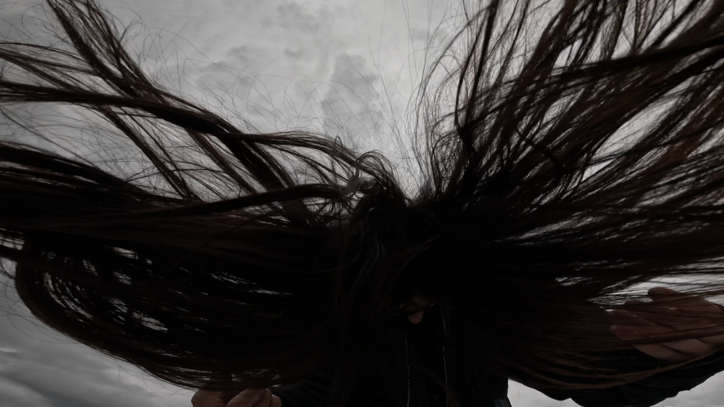
You briefly mentioned freestyling in your writing process. Have you always used freestyling as the start to the process?
CLS — Yeah, because I’m definitely not ever walking down the street and writing a song. I don't write music like that. I'll always have to start with the music, whether that's really simple or more complex, but that will kind of just give me ideas and help me to think of certain words to fit the music. And then I just hum vocal melodies or something and record them and do that quickly. I love that whole process of going back and forth and just doing the vocal melody first and then fitting lyrics to it.
Do you feel like any of that is influenced by hip-hop music at all?
CLS— I mean, I'm definitely influenced by that genre, but I'm also influenced by so much. It's hard to pinpoint one specific thing. I guess I was speaking more so in the way that a lot of rappers just kind of ad-lib over a beat or over backing track.
I did read online, and this made me quite happy, that you're a fan of Future. I'm wondering, what is your favorite Future song or album?
CLS— My favorite one is his more recent one, I Never Liked You. I liked that a lot.
Yeah, that's a good pick. I mean, you have such a range of happy, sad, hype songs. I personally really like sad Future, but I was wondering if you feel gravitated to any particular sound for his music.
CLS— Yeah, I love the kind of more upbeat ones, and when I'm listening to his music, I do listen to a lot of that. I think one of my favorite Future songs, though, is probably "Solo." And that album was amazing. Hendriix was great.
I was hesitant to ask you this, but I'm going to ask: when you look up Clara La San on the internet, the number one word that you saw show up is mysterious. It's like, this “mysterious UK artist.” Was this an intentional thing that you put out, or do you feel like you've been dubbed this? Do you feel all right being perceived as this?
CLS— It's never really been intentional. I think I've just fallen into it based off taking a mixtape offline, and people probably thought… I don't know what people thought, but I had my reasons for taking that offline. But of course I don't mind. I mean, I am a private person and I just feel content with what's out there or how I'm being perceived. It doesn't feel unnatural to me.
Do you feel like notoriety and fame and validation are important things to you? And how did you cope with being out of the limelight for a while?
CLS— I mean, I was just kind of living and stuff, working in different jobs. Maybe there would be times when I'd be like “I really want to put something out there. I want people to hear my music.” I thought, what if something were to happen to me and nobody ever heard my music? Could I feel like I had something to say? But also, I was just living my life and always writing songs. And I get so much kind of thrill from just writing a song, even if I don't share it, because it helped me to figure something out or to understand an emotional state I was in. The sharing always comes last because the main reason why I write music is for me.
You have a viral song on TikTok, "In This Darkeness". Artists run the gambit of disliking TikTok and the kind of superficiality of it. It's like, they hate it and its effect on the music industry, or they appreciate the boost that it's given to their careers. So how do you feel?
CLS— I mean, it amazes me how that happened, how that song reached so many people. It is hard to process because it did reach so many, and I personally think, yes, it's amazing. I mean, I wrote that song nine years ago, and it was just kind of living online, sitting on SoundCloud, and it was doing well on there. I'm really grateful for everyone who shared that song.
I feel like there is a sense of longing on this record. What is one of your favorite love songs or songs of longing?
CLS— This is a really great question. Caught me off guard. It's really hard to choose one I'd definitely have to say something by Sade. Definitely maybe "King of Sorrow," if not every single song. Sade is always an incredible pick.

I want to talk about the songwriting on the record because it's very, very personal and obviously you're releasing it to be listened to by lots of people. Is that something that scares you, or is it cathartic?
CLS— So a lot of the music that I write, all of it really, it does come from an honest place, and I find myself writing about real life experiences a lot, whether it's the past, present or the future. It's just been great to see how people have reacted from songs already online and how they've resonated with them. It just feels right to share music that makes people feel good and makes me feel like I figured something out.
When would you say the process of making the record began?
CLS— I mean, some of the songs on the album have come from, I'd say about six, seven years ago. Some of them are more recent, but we started working on the album I'd say two years ago. I think roughly, I'm really bad with time, so I might be slightly wrong there, but as an estimate, two years.
What has life been like for you in those two years?
CLS— I've just been able to take my time. I've just been able to enjoy writing with no restrictions. It is just so great for me to be able to write exactly what I want to write and when I want to write. I was saying this before to somebody else, but a lot of the times the music that I write isn't happy. Well, it isn't happy, but it's not necessarily sad. I don't write all the time, because I feel like I have to be in a certain mindset and I might not want to be in that mindset for the day.
Do you journal?
CLS— No, I don't. And you know what? I have tried and I just can't. I think the reason why is I don’t like the idea of writing down personal thoughts in a journal and it just being around, because I’m a really private person.
So you don't like writing your thoughts in a journal because you're private, but then you'll release it to lots of people…
CLS— In lyrics form, and I think that's different! I feel like it is a different side of you. It's the same as when people don't like their speaking voice. I wouldn't enjoy hearing me talking back, but I like hearing me singing.
How do you feel when you hear yourself sing?
CLS— I really like it. I enjoy my music, and maybe that's because I’m able to write what I want and how I want it to sound production wise. It's so therapeutic.

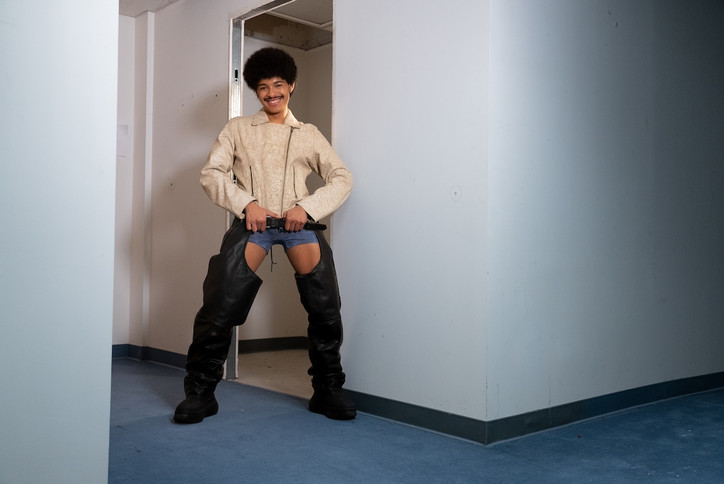
office gave Isaac an impromptu pop quiz where there are no wrong answers... except, of course, the wrong ones.

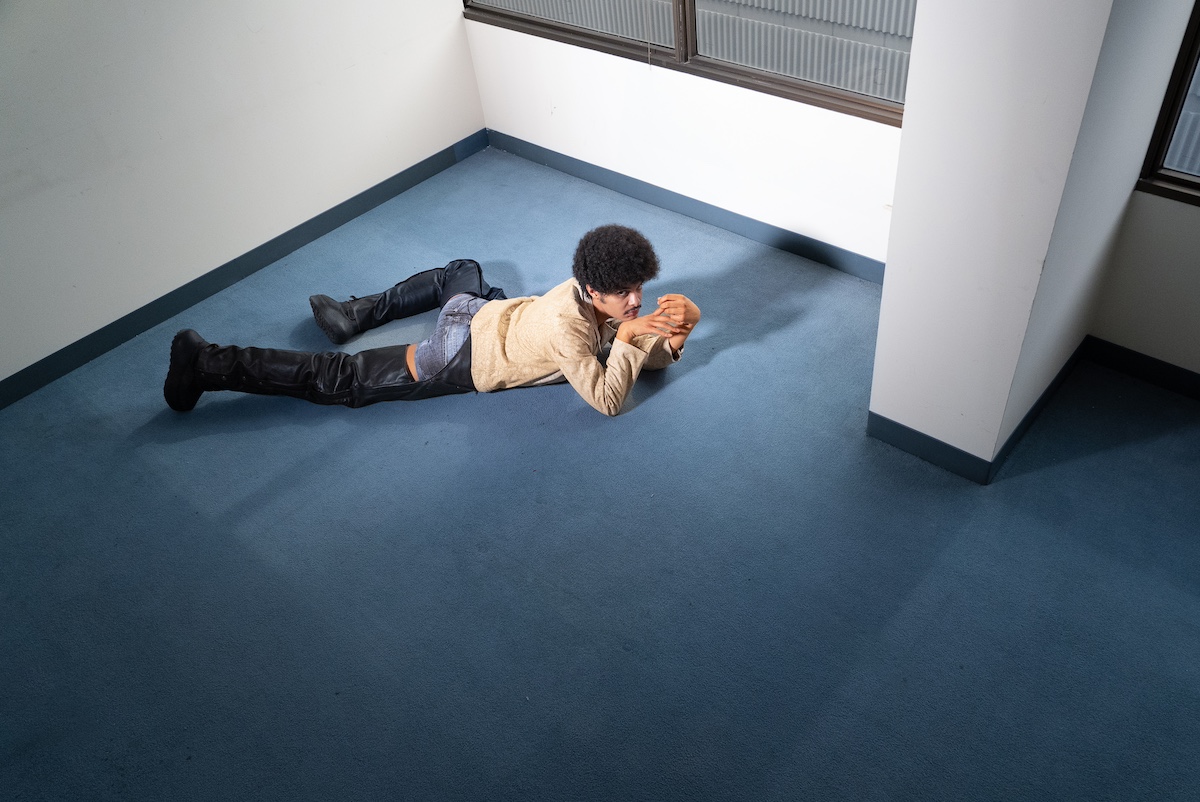
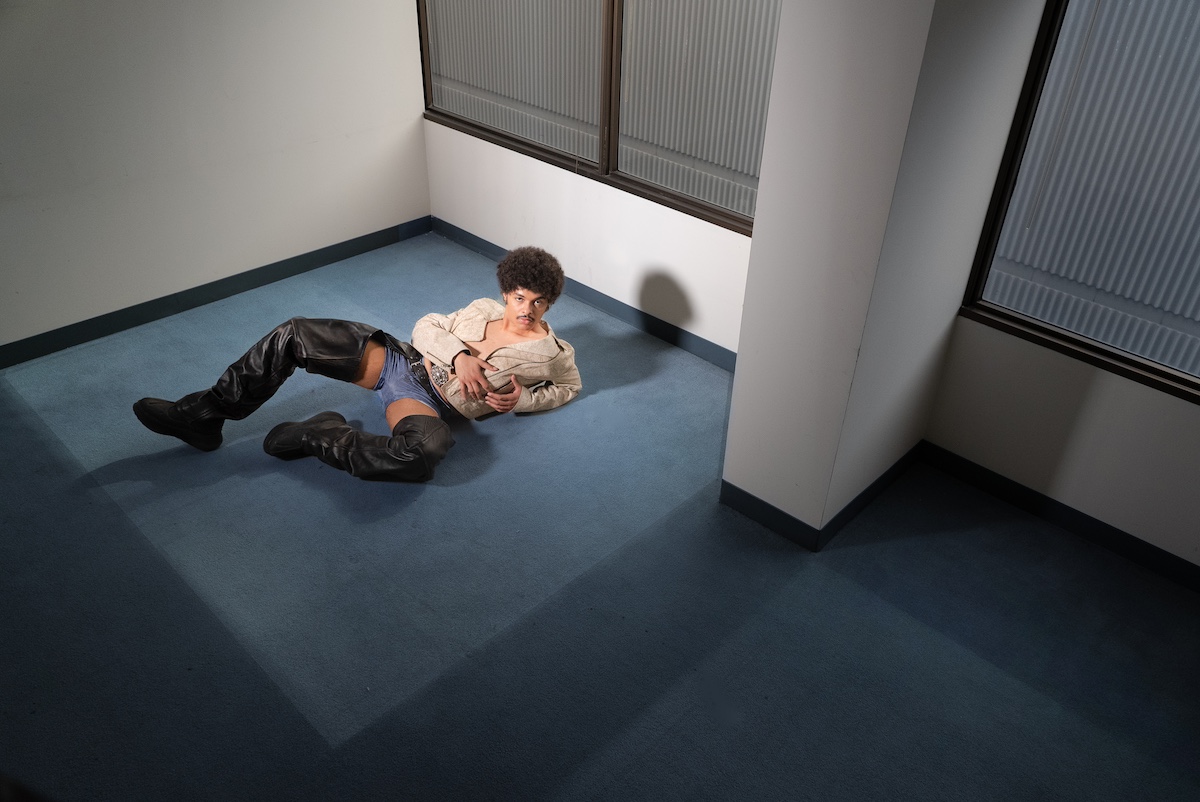


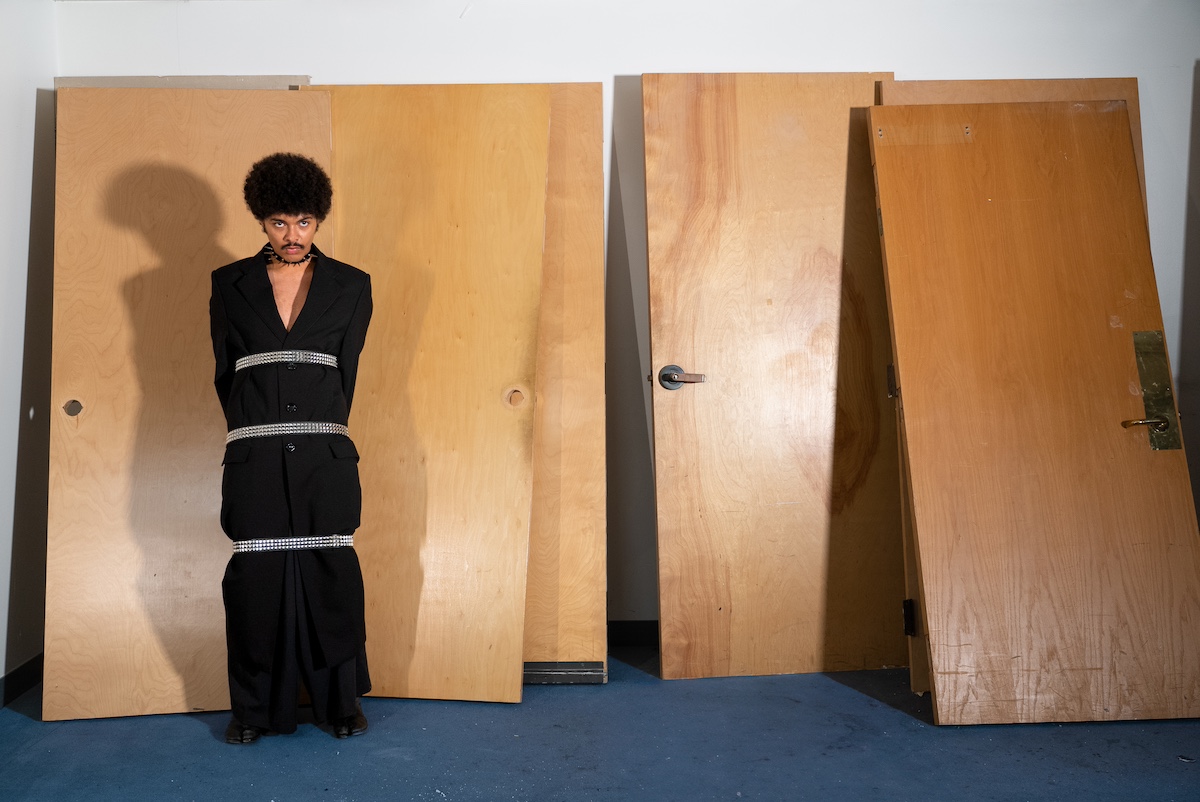
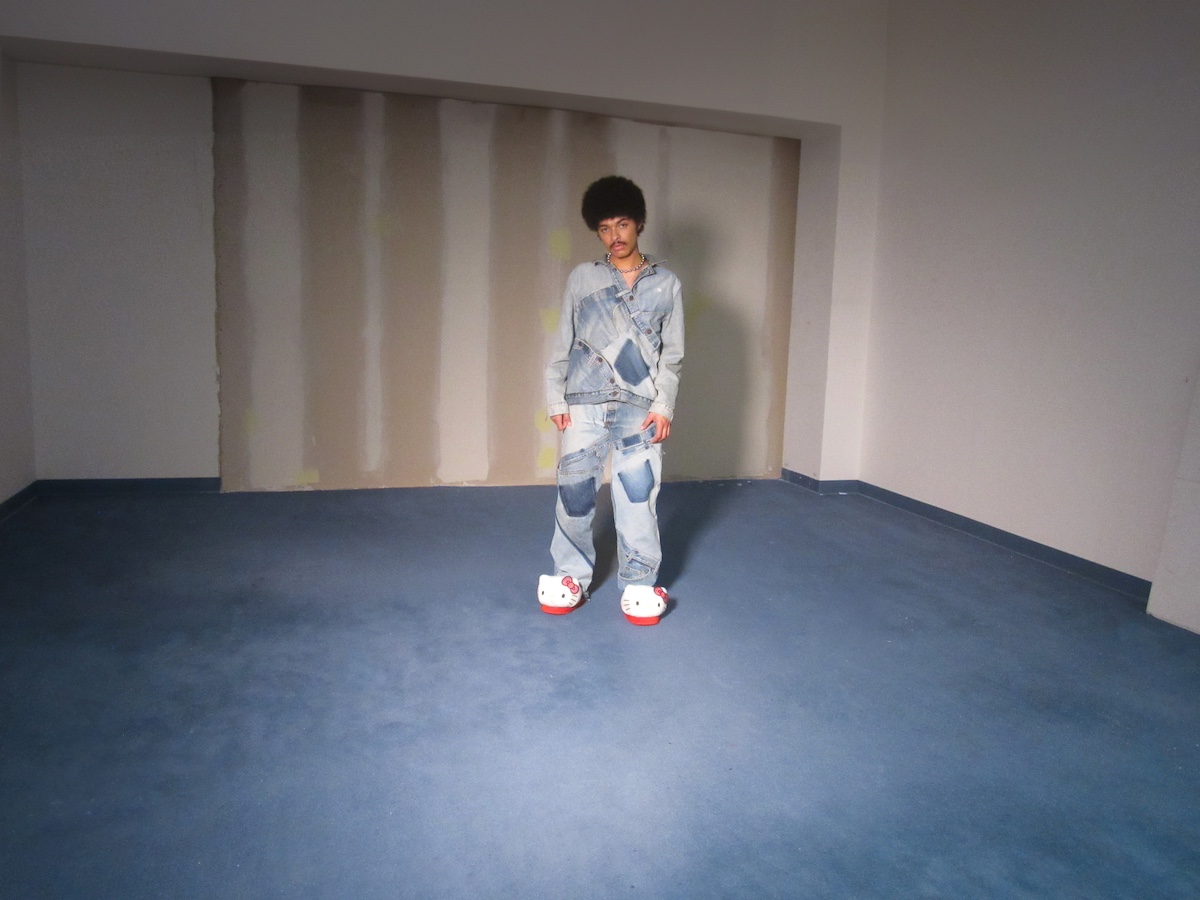
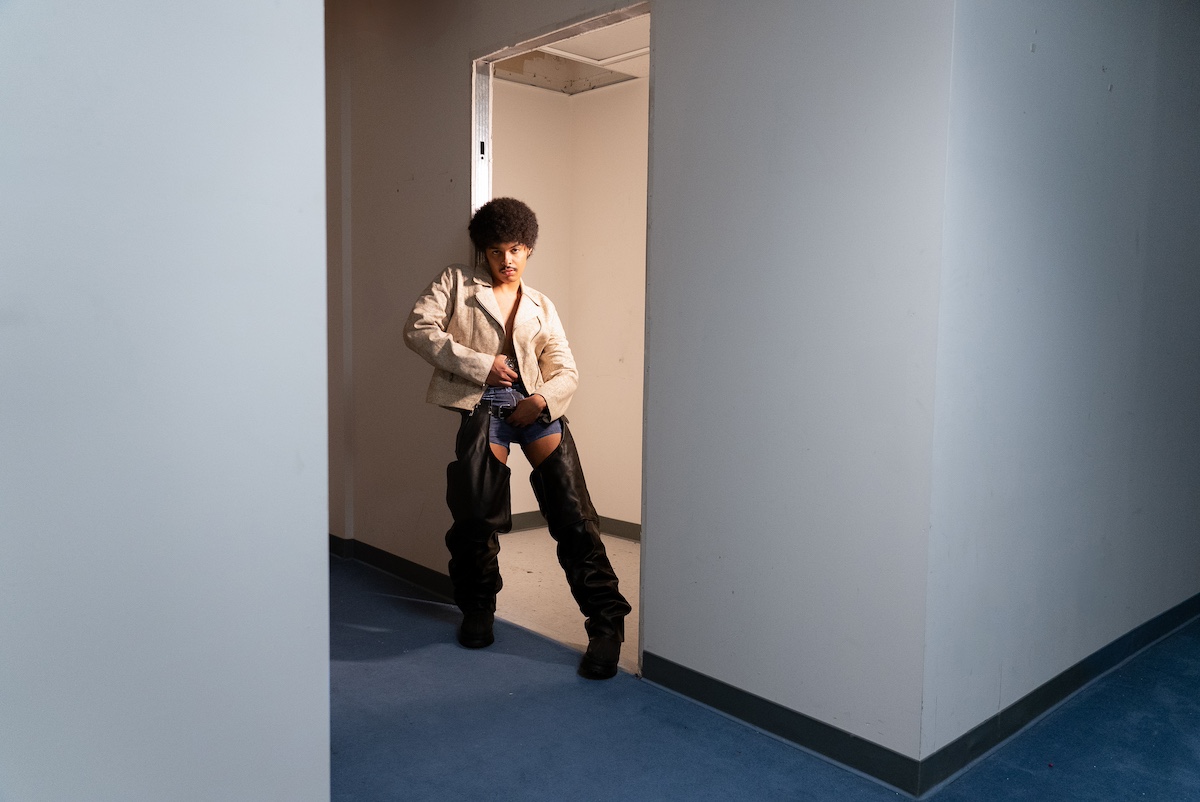
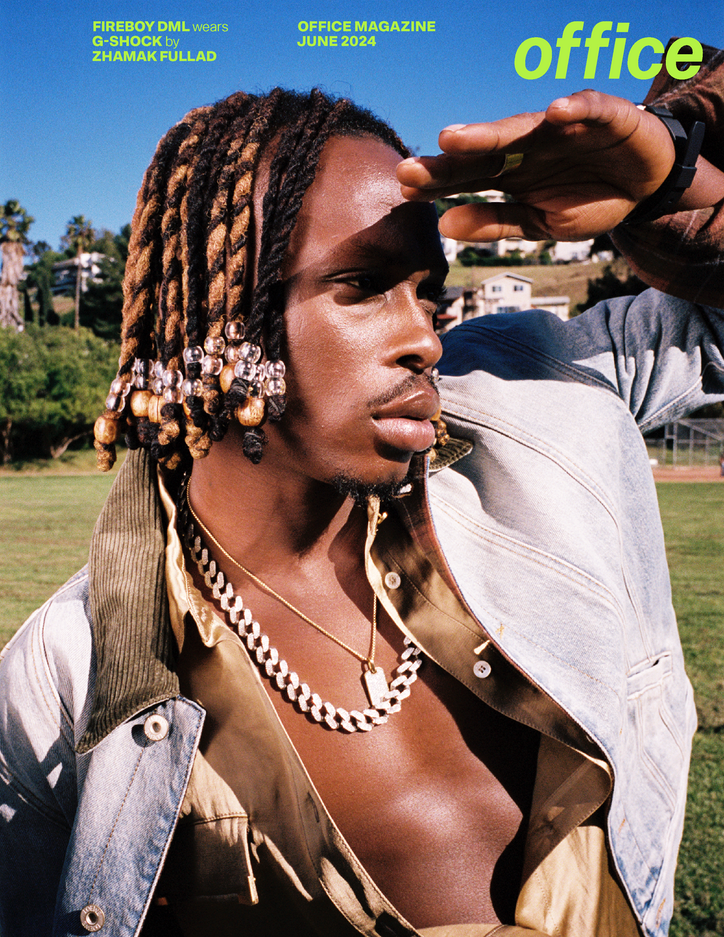
FIREBOY DML wears JACKET and PANTS by LOEWE, SHIRT by PALM ANGELS, GM2100-1A WATCH by G-SHOCK, JEWELRY is TALENT’S OWN
The shift he notes in his worldview over the last few years was also the catalyst for the album — a catalyst Fireboy says he requires in order to begin a new project. “The truth is, I work better when I have a story to tell and a vision to pursue," he says. “It's easier. I don't just get in the booth and randomly say, ‘oh, I want to make an album.’ Something has to happen, a life changing experience or a switch, and that's what really happened towards the end of last year.”
“I learned a lot about what’s really important,” he continues. “I lost friends: I lost a friend to death, I lost a friend to life. So right now I'm all about going back to the basics, back to the roots, focusing on my family and the things that really matter to me, because if those things are not in good condition, then your success doesn't really matter. It's nice, but there's always more, there's always going to be more. But if I really focus on the things that matter, all these things would just be a huge bonus. It’s so easy to lose sight of that.”
Throughout our conversation, he controls his voice with the gentle, almost gingerly cadence of someone who has learned through experience how a single spontaneous choice of words or melody can transform a life in an instant — for the worse, or in Fireboy’s case, for the astronomically better. His 2021 global smash hit “Peru” emerged during an extended freestyle at a studio in San Francisco; birthed in the spur of the moment, the song’s earworm chorus led to the accumulation of over 500 million streams and the introduction of Fireboy to an international stage. Since then, he has collaborated with stars including Madonna, 21 Savage, and Ed Sheeran, released his third album “Playboy,” and just weeks before our conversation, performed with Jon Batiste at Coachella.
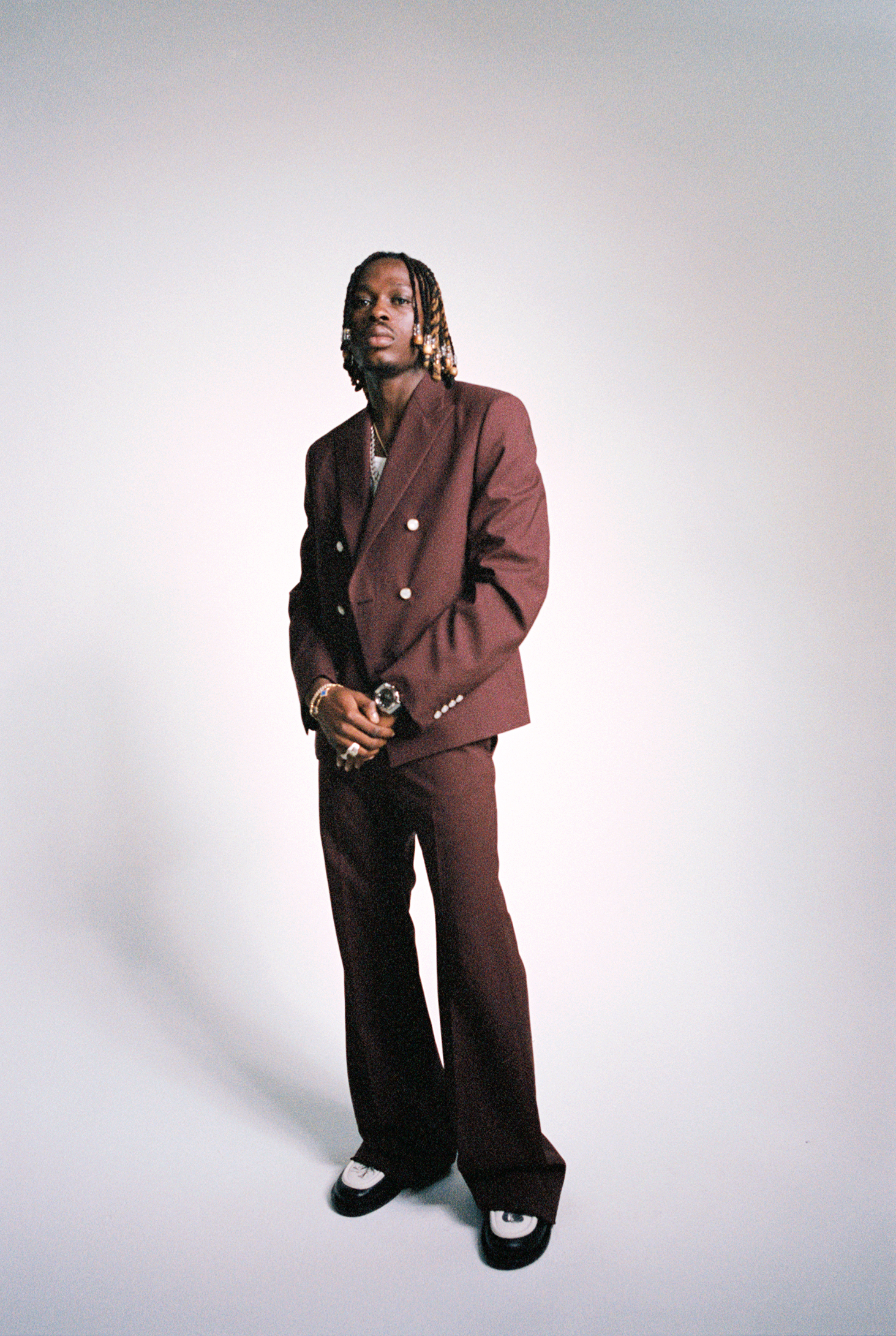
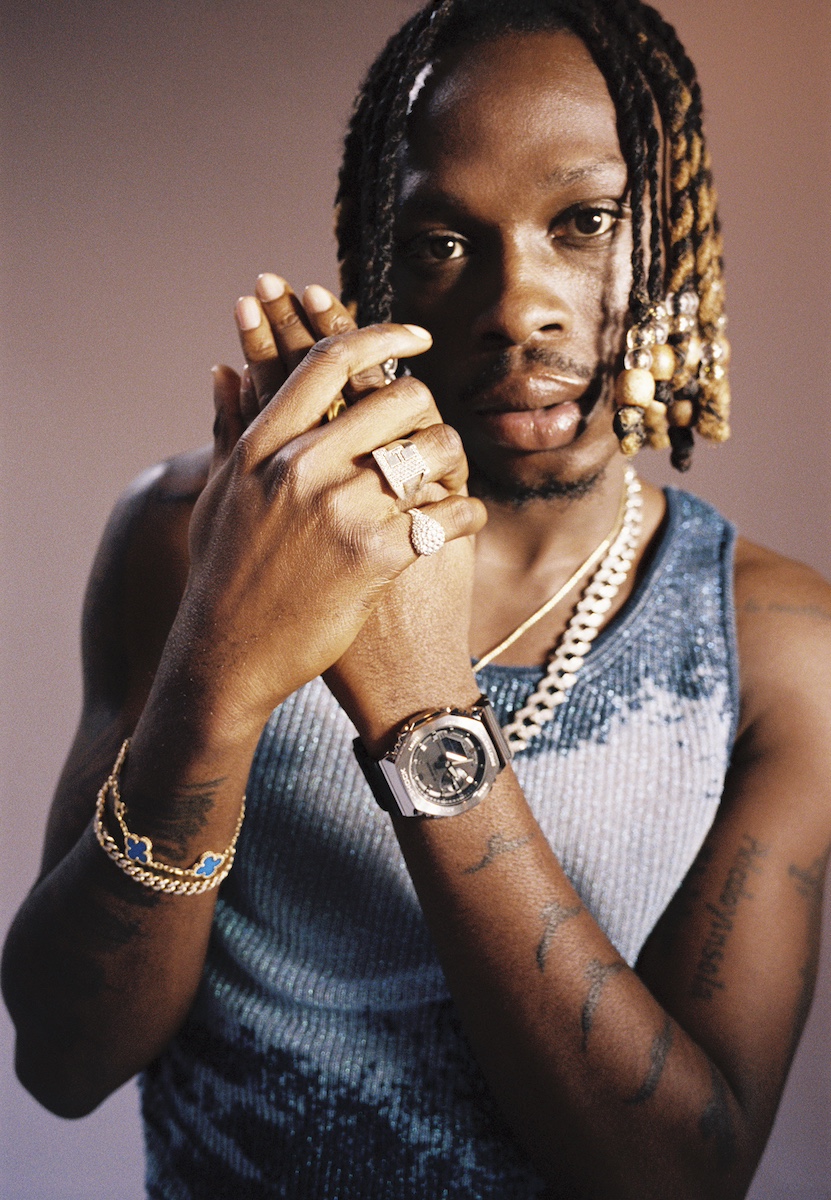
FIREBOY DML wears SUIT and SHOES by LOUIS VUITTON MEN'S, GM2100-1A WATCH by G-SHOCK, JEWELRY is TALENT’S OWN (left)
FIREBOY DML wears FULL LOOK by DIESEL, GM2100-1A WATCH by G-SHOCK, JEWELRY is TALENTS OWN (right)
Global superstardom was not necessarily predictable for a young Fireboy, who describes himself as a “very quiet, nerdy kid growing up.” Born Adedamola Adefolahan (the “DML” in his stage name is an abbreviation of “Damola”) and raised in what he describes as a “sheltered” environment, he cultivated his creativity during the long hours he spent alone and indoors, reading books and listening to albums. “From there, I realized I could write, I realized I could come up with words,” he recalls. “Mostly poems at the time. I used to write short, mostly sad poems.” He was able to truly cultivate his voice when he left home to study at Obafemi Awolowo University five hours away, suddenly thrust into the mantle of adulthood and independence for the first time in his life.
“That's when I really started to discover myself,” Fireboy recalls. “I thought I was going to be a scholar because I was a straight A student, I was always so serious, so good at my books. But the university is very diverse, and I started meeting creatives, dancers, writers, poets, different people. I was inspired immediately. And before I knew it, I started going out with the cool kids in school, the dancers, the musicians, and going to the studios with them. As a joke, one night I got in the booth, and I just made my first song. And it didn't sound bad at all.” That night, he found himself replaying the makeshift demo over and over again in his dorm room. “Before I knew it, [my poems] started developing into rap, but unfortunately, I don't have the voice for it,” he continues. “I'm a singing ass nigga — I tried to rap a few times but… it didn't work out. So I tried singing and I realized I was really, really good at it. I was like, okay, so this is it.”
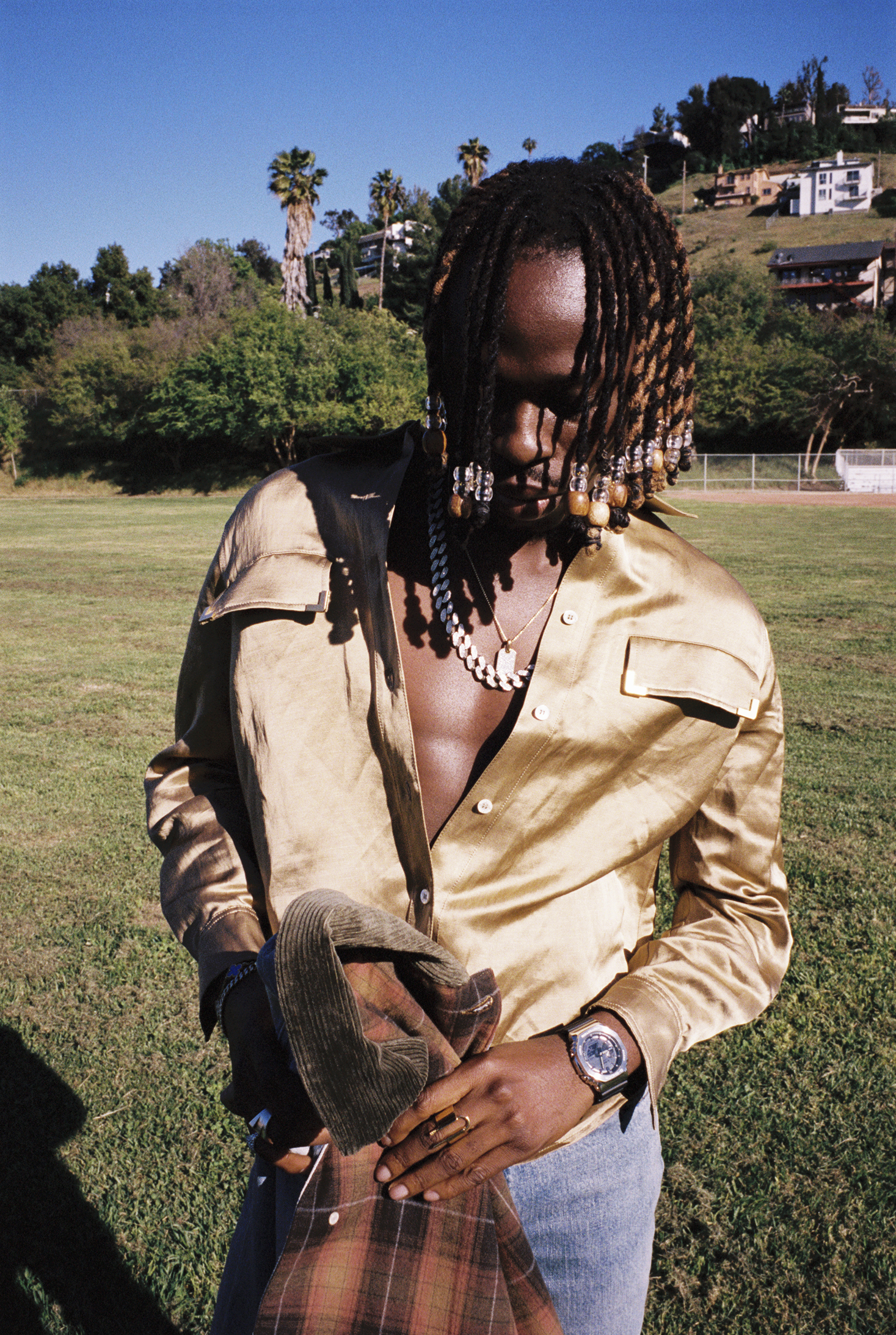
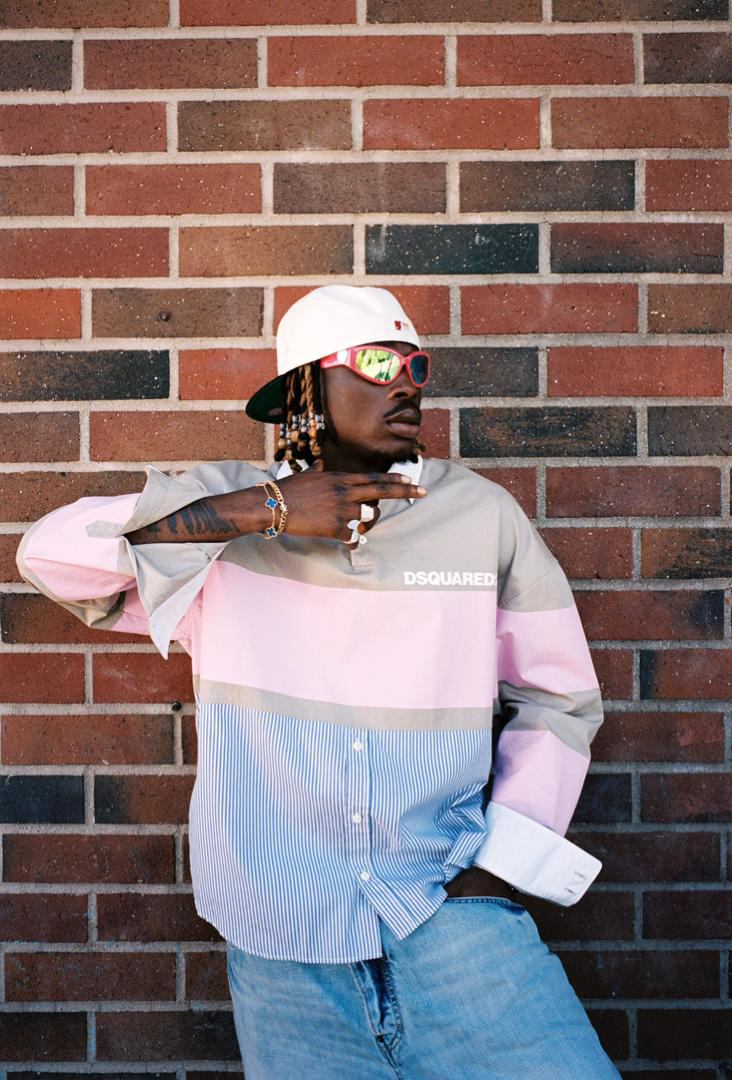
FIREBOY DML wears JACKET and PANTS by LOEWE, SHIRT by PALM ANGELS, GM2100-1A WATCH by G-SHOCK, JEWELRY is TALENT’S OWN (left)
FIREBOY DML wears FULL LOOK by DSQUARED2, GLASSES by TIFFANY CO., GM2100-1A WATCH by G-SHOCK, HAT by NEW ERA and JEWELRY is TALENT’S OWN (right)
Fireboy speaks about his career with a tightrope-act balance of matter-of-factness and humility. He is under no illusions about his role in the global surge of popularity experienced by the Afrobeats genre since the late 2010s, but he is also refreshingly uninterested in battling to keep the spotlight on himself. He is sparing when discussing the details of his own success for any longer than necessary, but he becomes animated when he speaks about the influx of young and fresh new artists emerging from the continent. “There’s a lot of talent out here. Right now the doors are so wide open for everyone to come in and flourish,” he describes. “As a true artist and true creative, it's exciting for me when a new crop of talent comes and it changes the soundscape of a generation. It's a beautiful thing to see. [The soundscape] gets tiring sometimes, it needs to be reshuffled once in a while.”
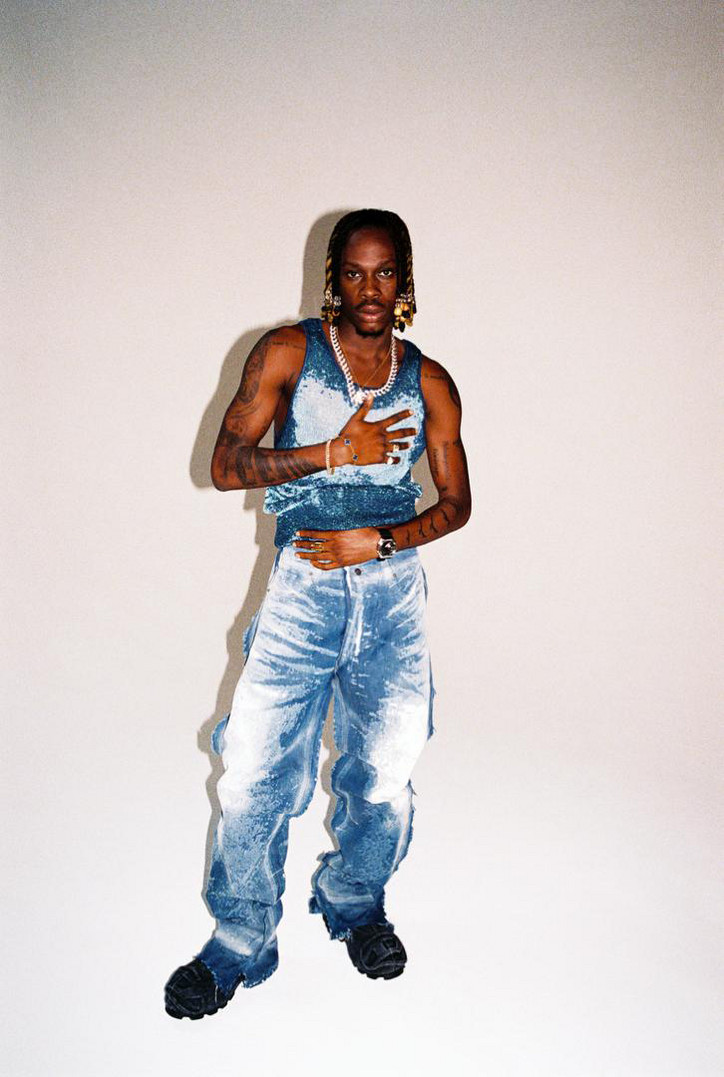
FIREBOY DML wears FULL LOOK by DIESEL, GM2100-1A WATCH by G-SHOCK, JEWELRY is TALENTS OWN
When I ask if he has any advice for that newer crop of artists, Fireboy becomes reluctant. “I'm not a fan of giving advice because I feel like life is crazy, and no one really knows it all. But I would always say, find your sound. Finding your sound is the beginning of everything. It doesn't start with going out to look for favors or for [someone] to help you. Whoever's gonna help you, they have to see something in you first, and if you don't put in work, there's nothing for them to see. The secret is always being there when the game needs you to show up. That’s how you succeed. Always keep showing up, at 3AM, at 6AM, when the game needs you to just stand up and record and make music.” He pauses for a moment.
“The game is a very jealous bitch — sorry for swearing, but for lack of a better word, music is very jealous,” Fireboy continues after a deep breath. “I had to sacrifice a lot of dreams to become who I am today. That's one thing that's always been constant: music is selfish. You have to give in, you have to be ready to sacrifice almost everything to have it. As long as you do that, everything else will fall in place — the money, the fame, the investors, the backing, the support, the fans — everything else will fall in place. Find your sound.”
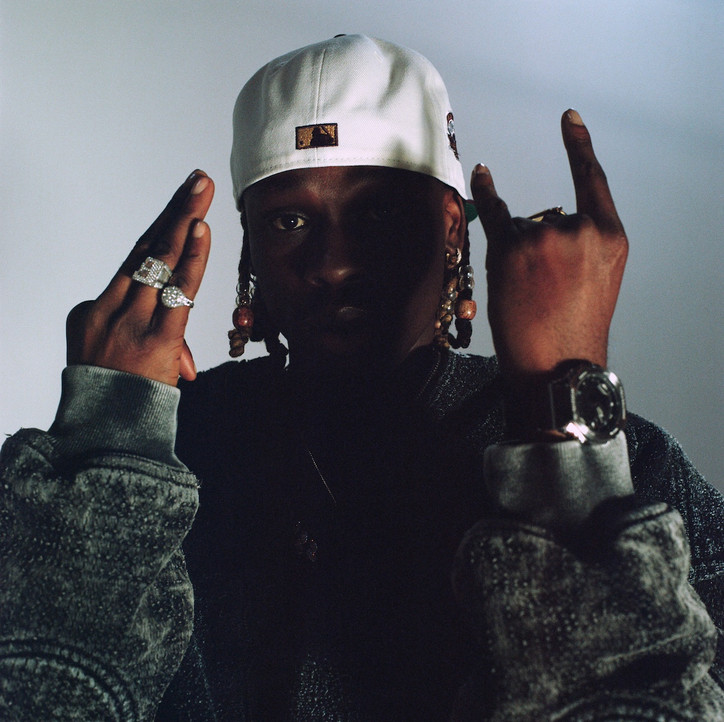
FIREBOY DML wears JACKET and PANTS by PDF, GM2100-1A WATCH by G-SHOCK, HAT by NEW ERA and JEWELRY is TALENT’S OWN